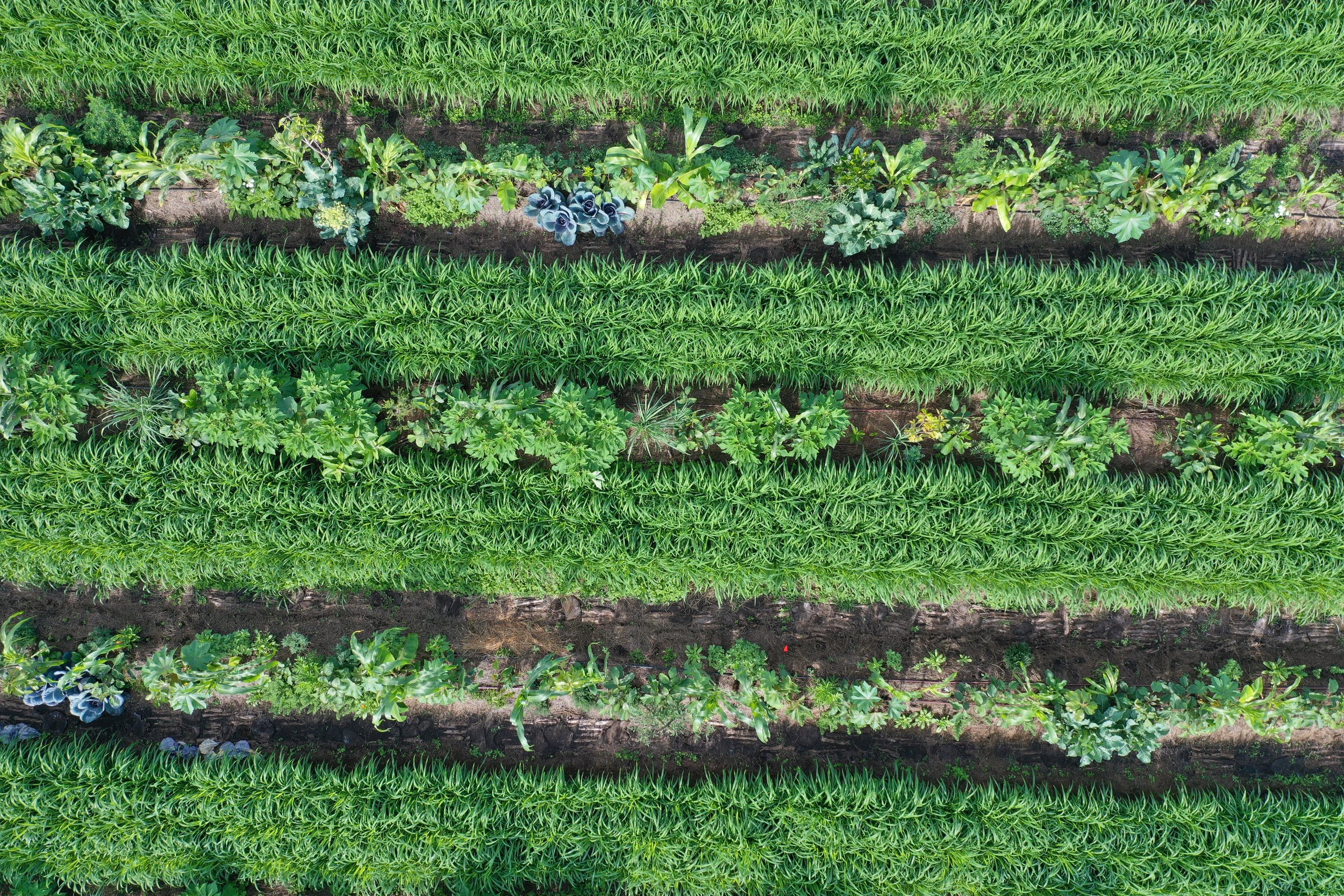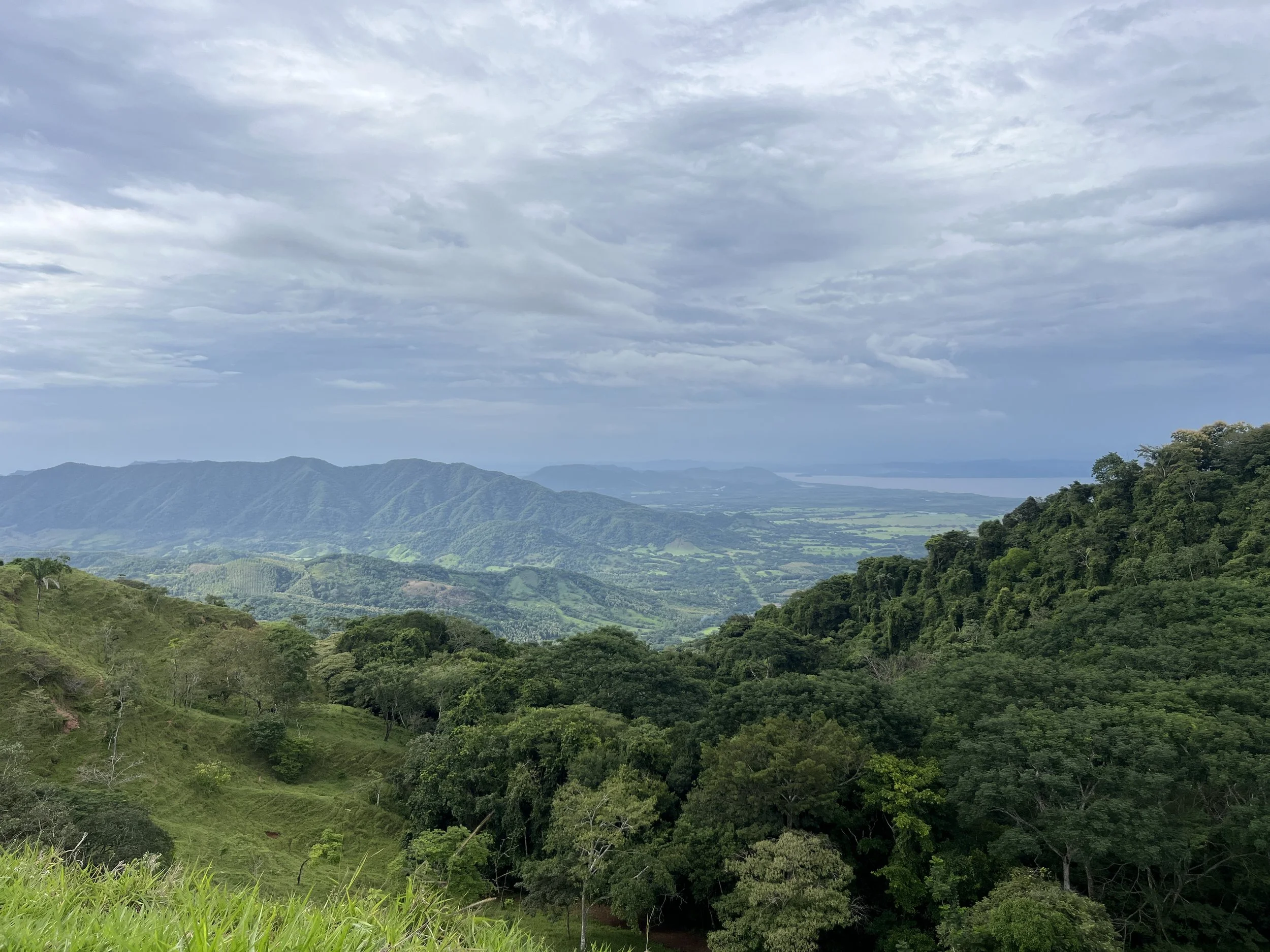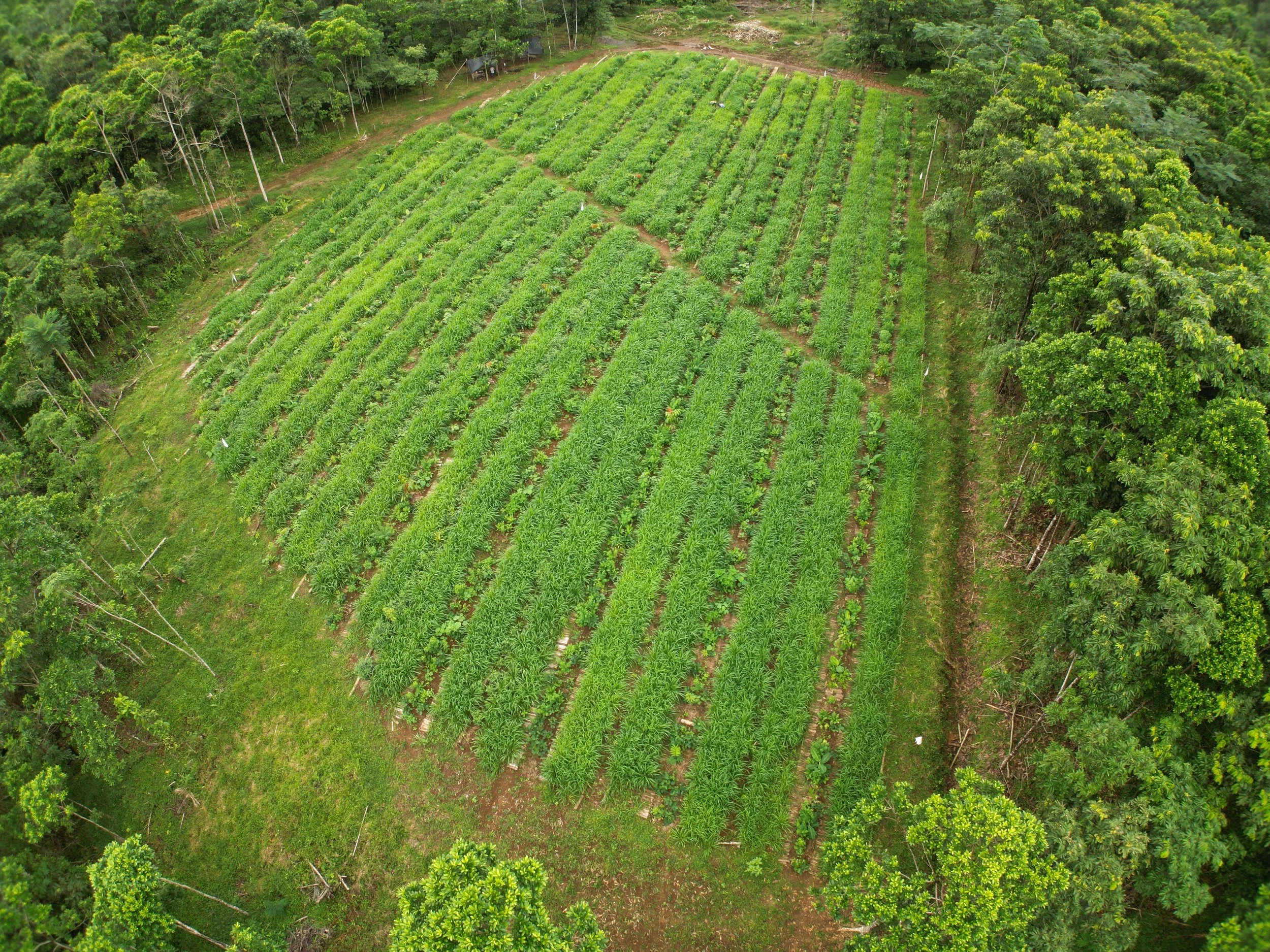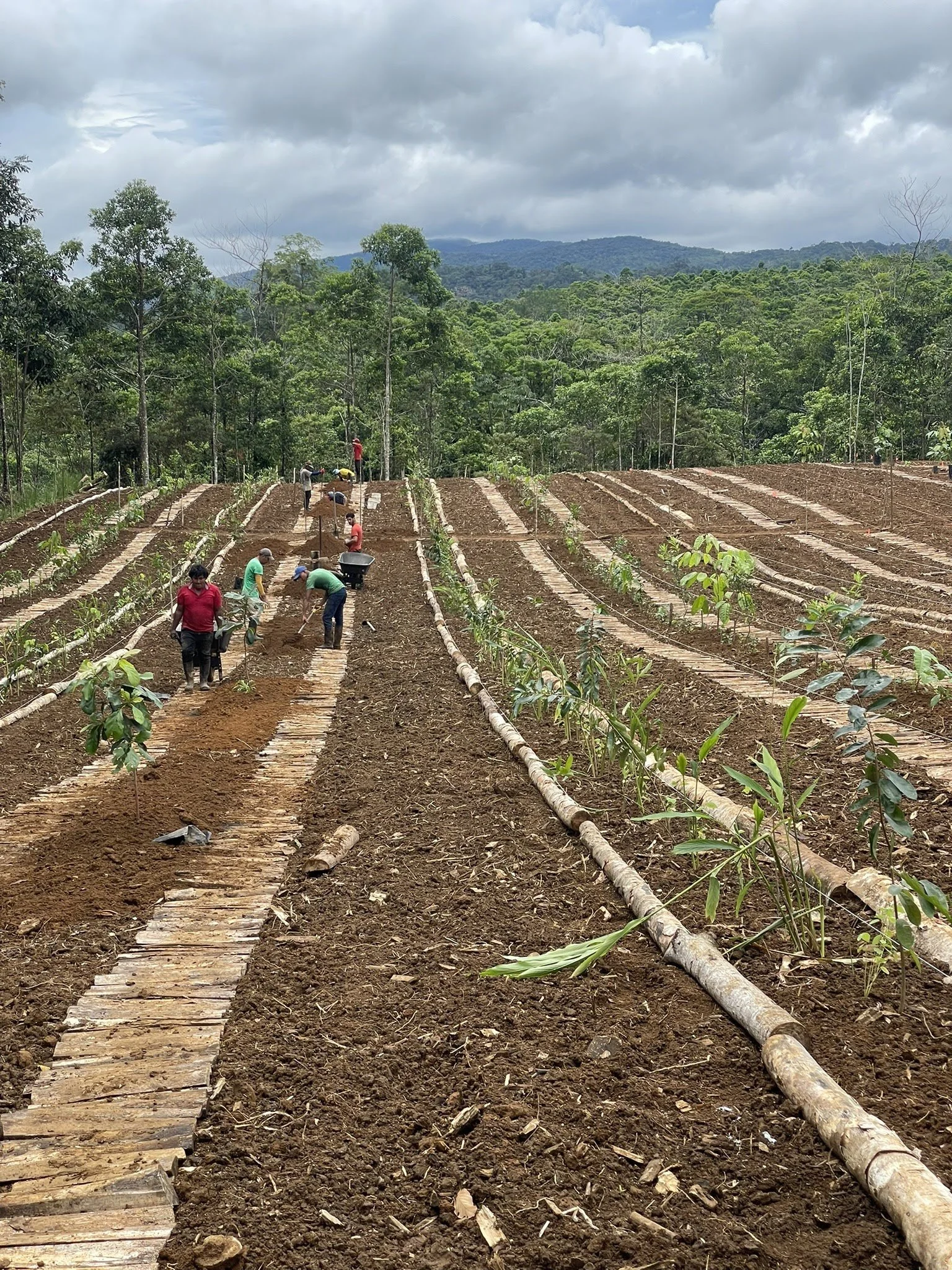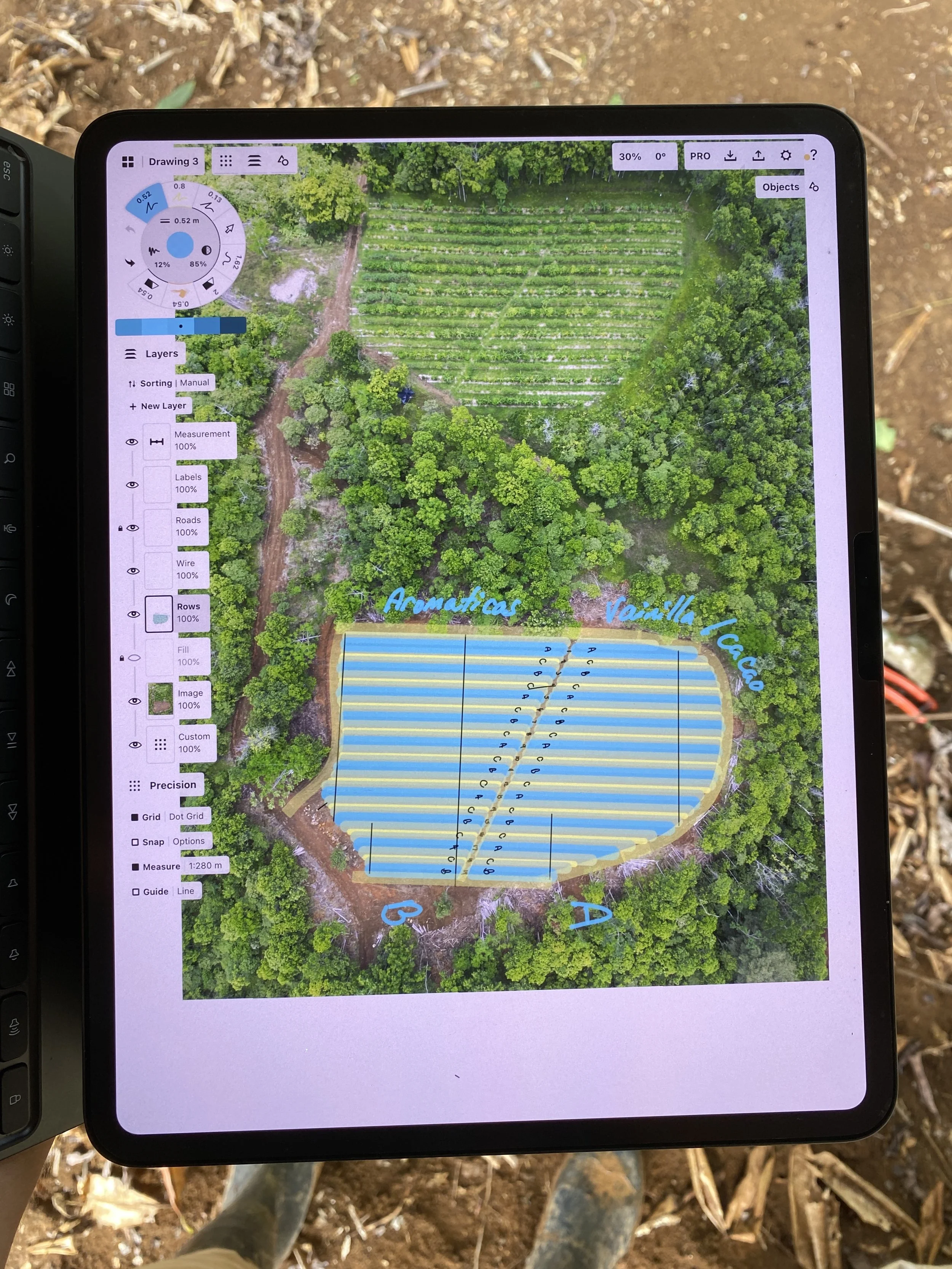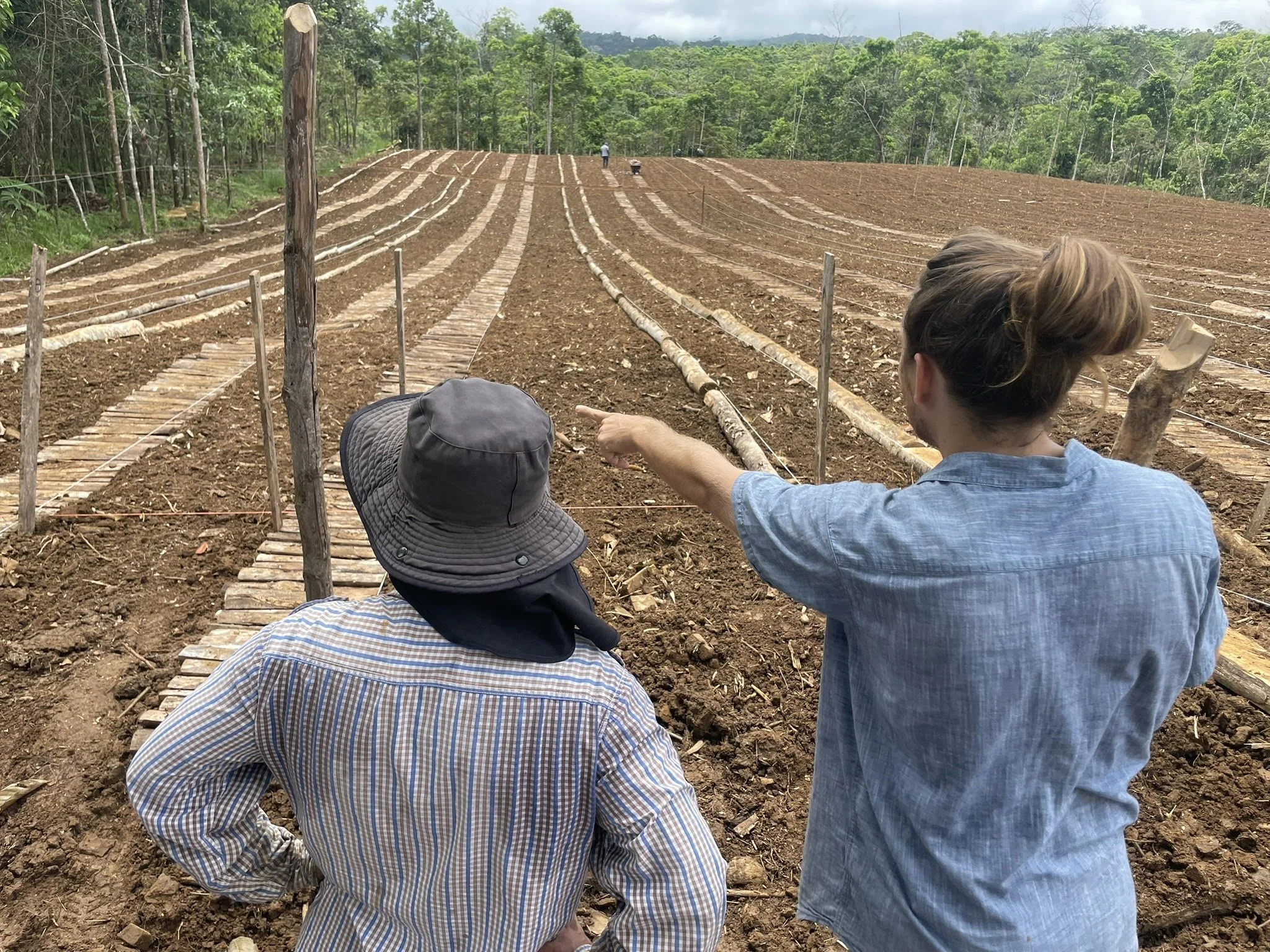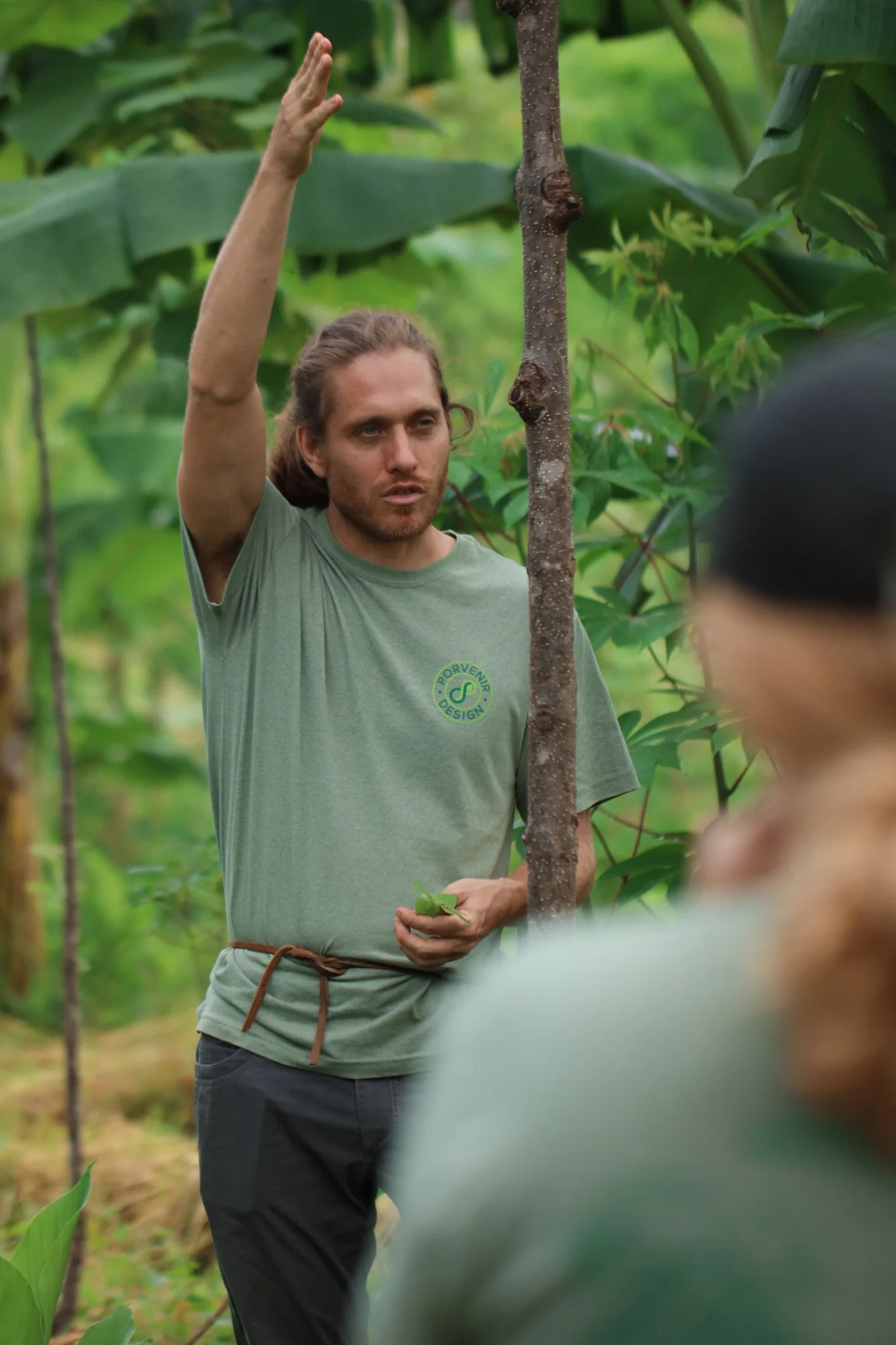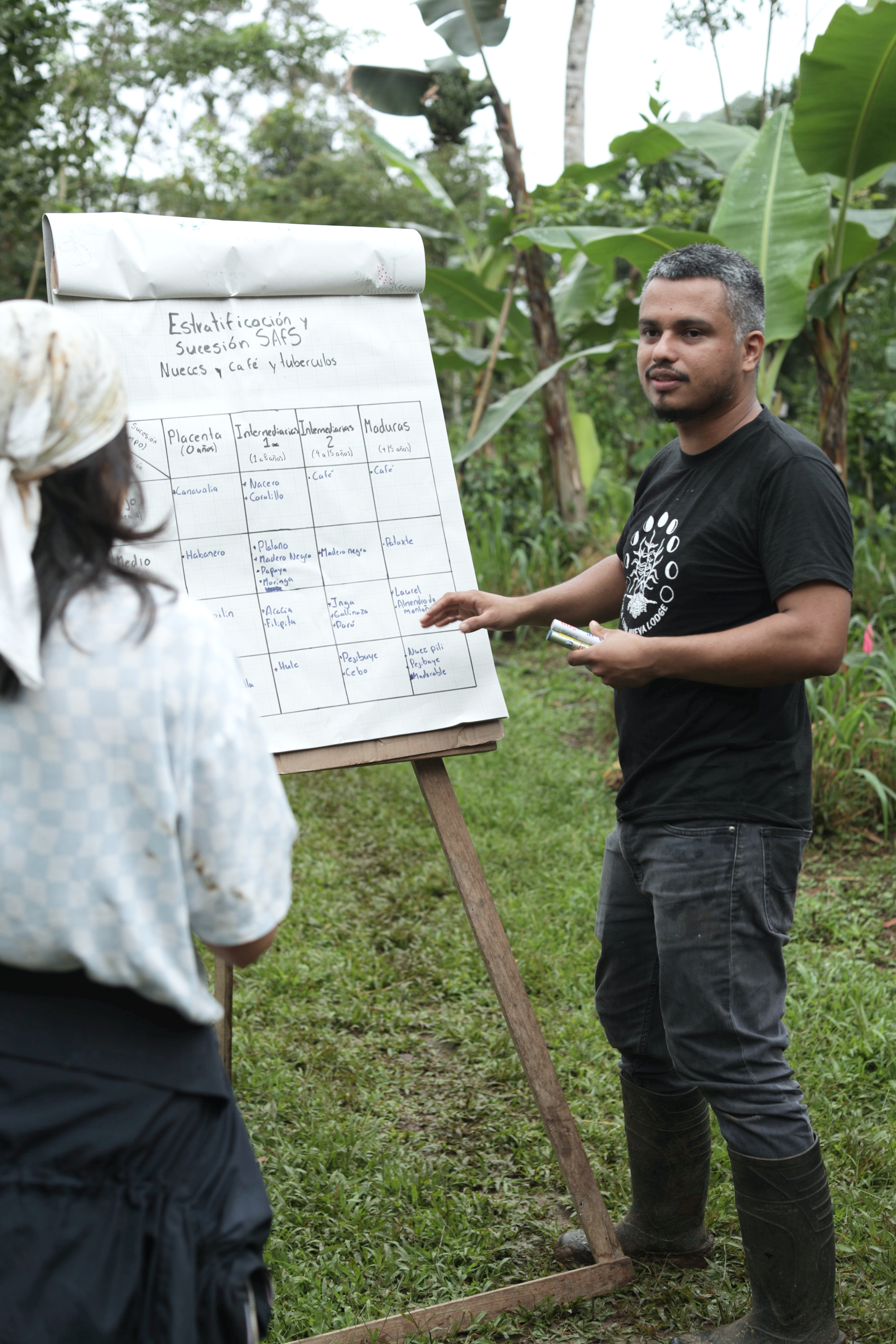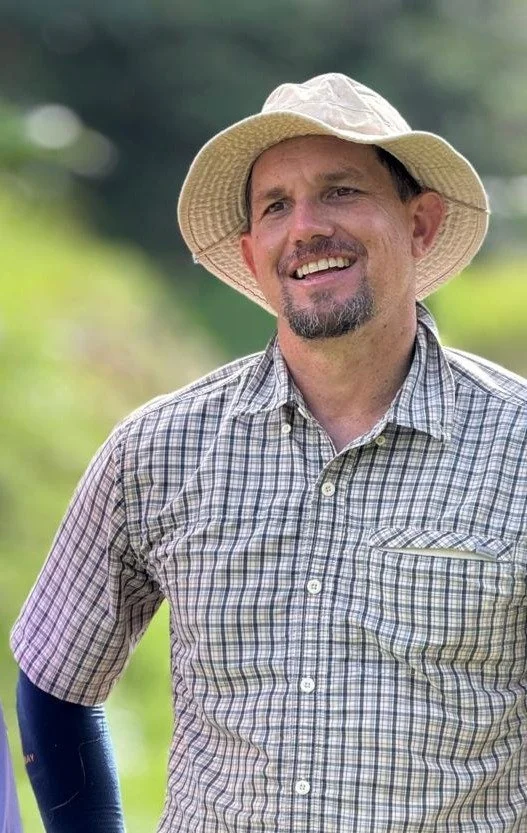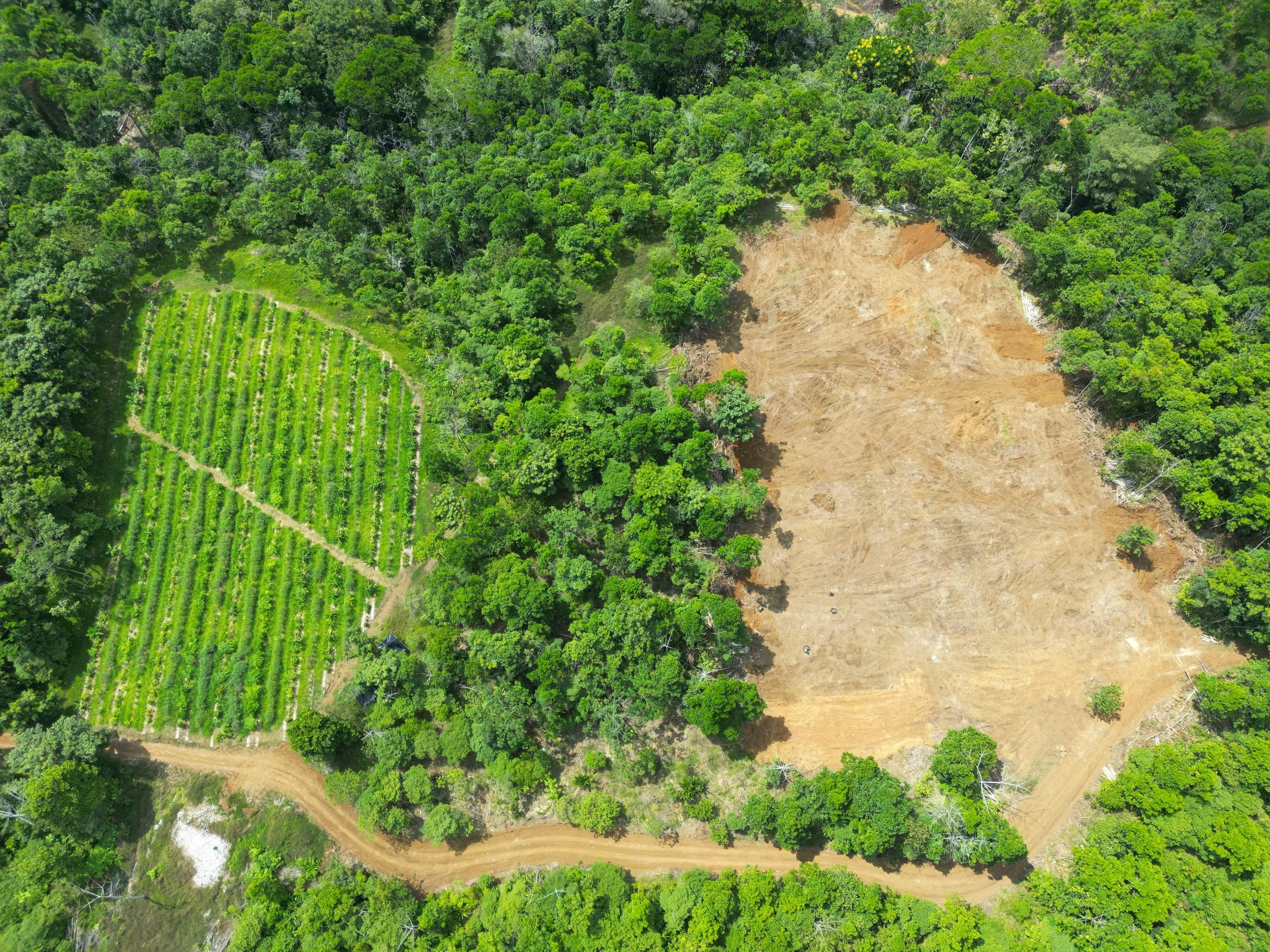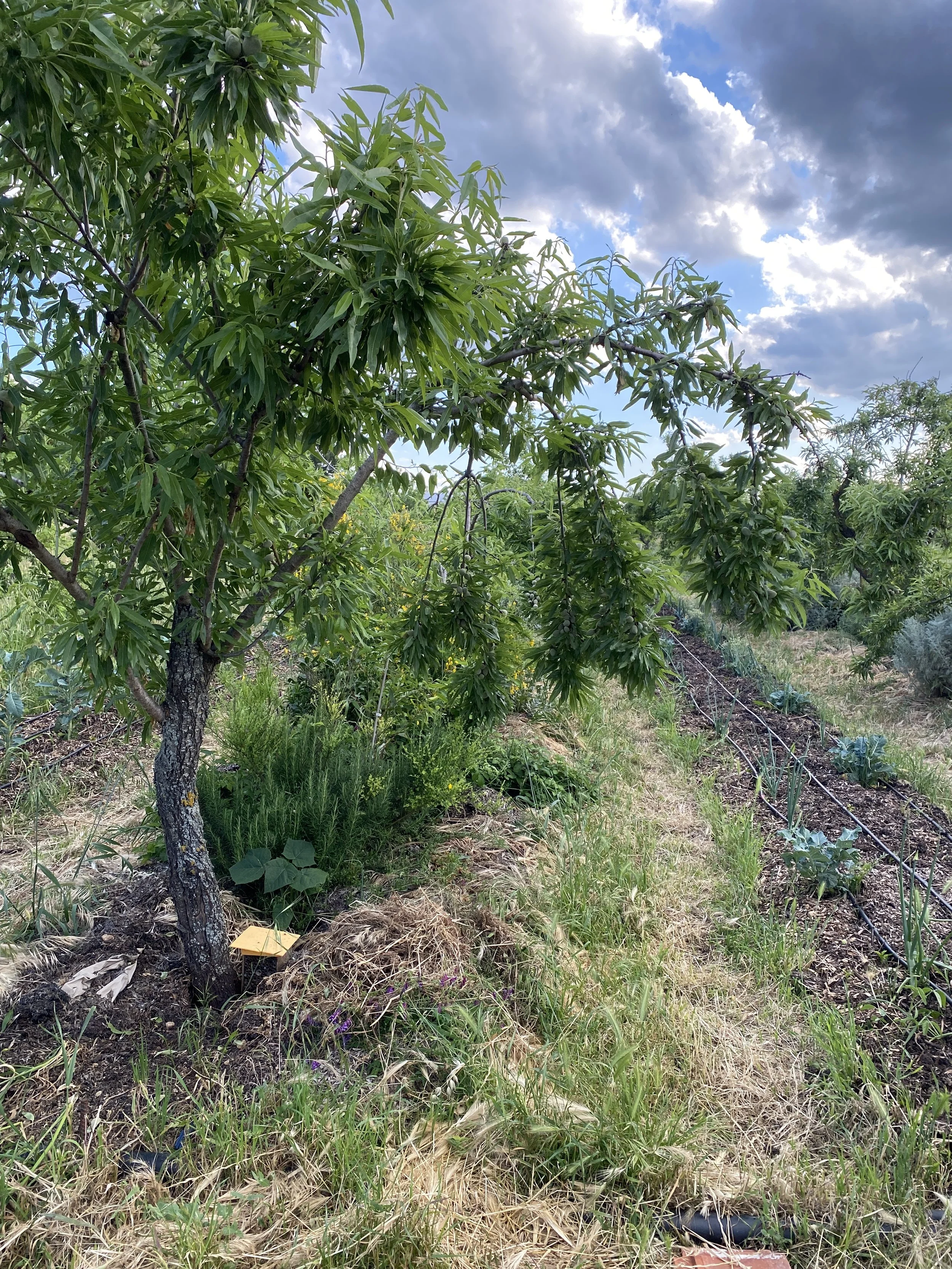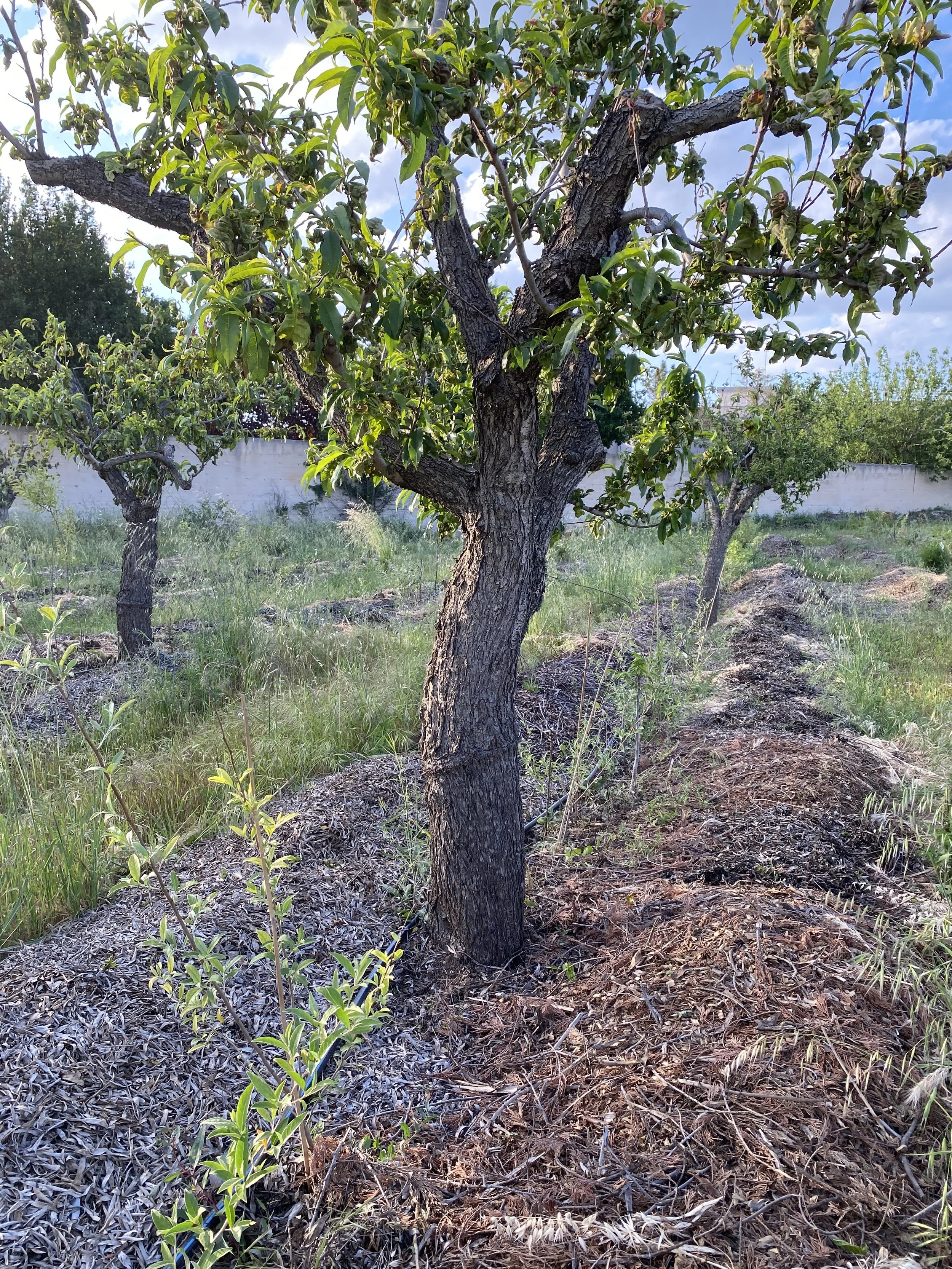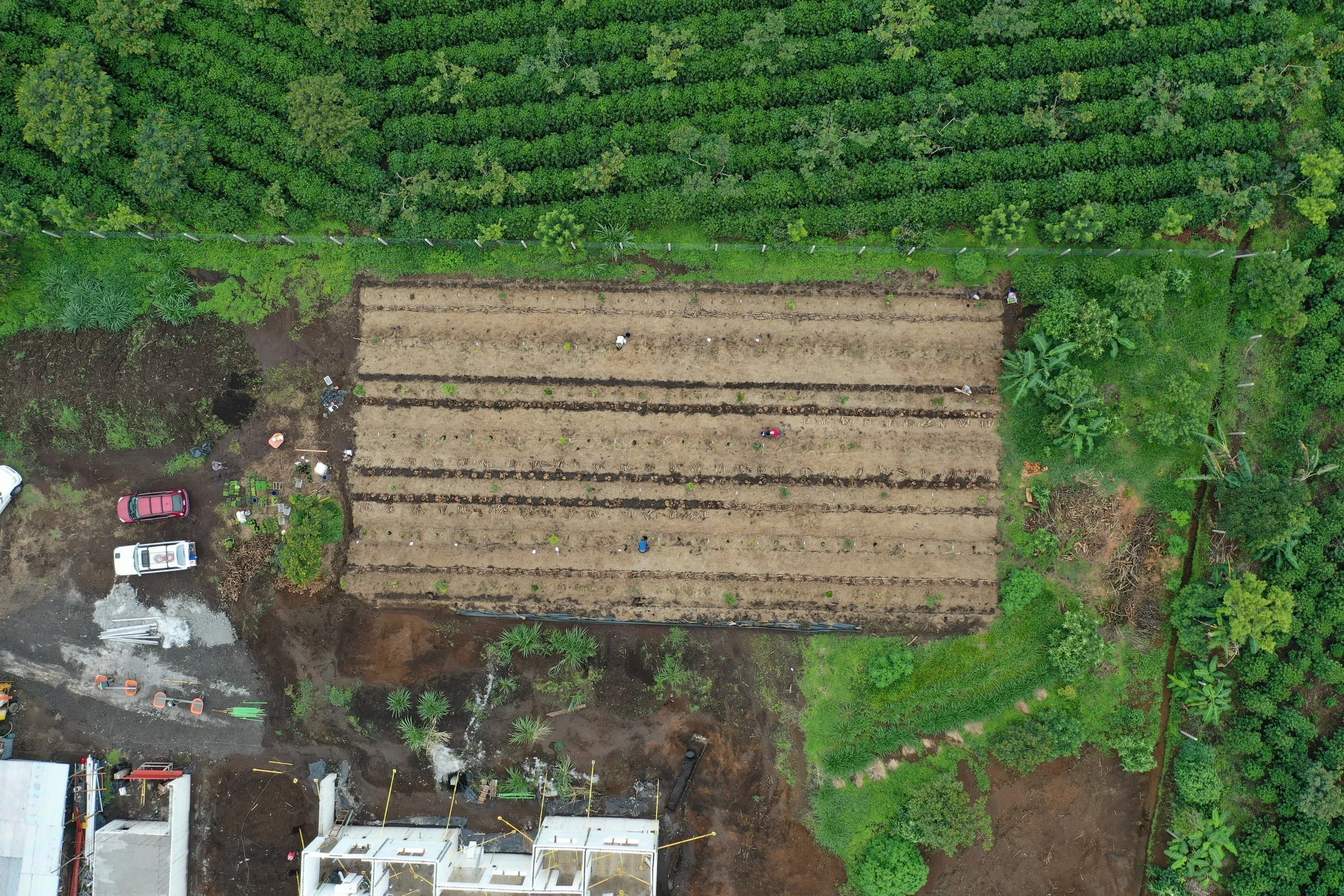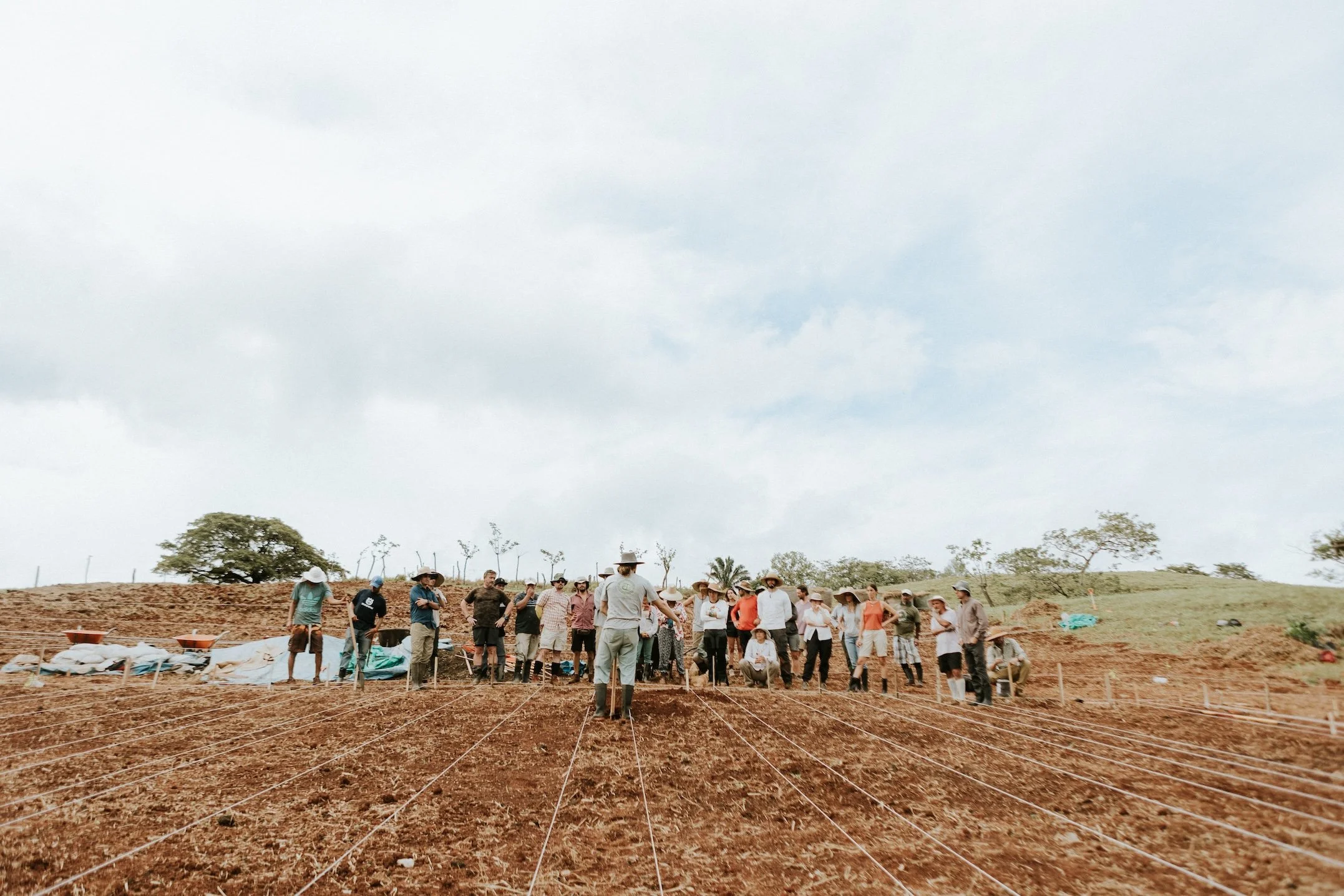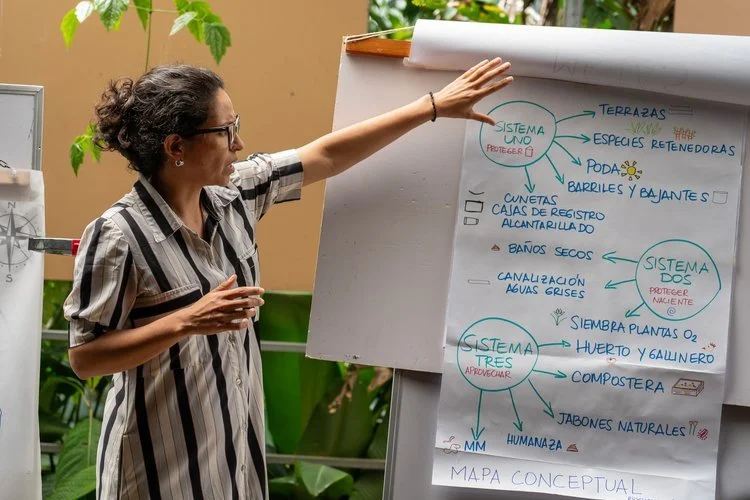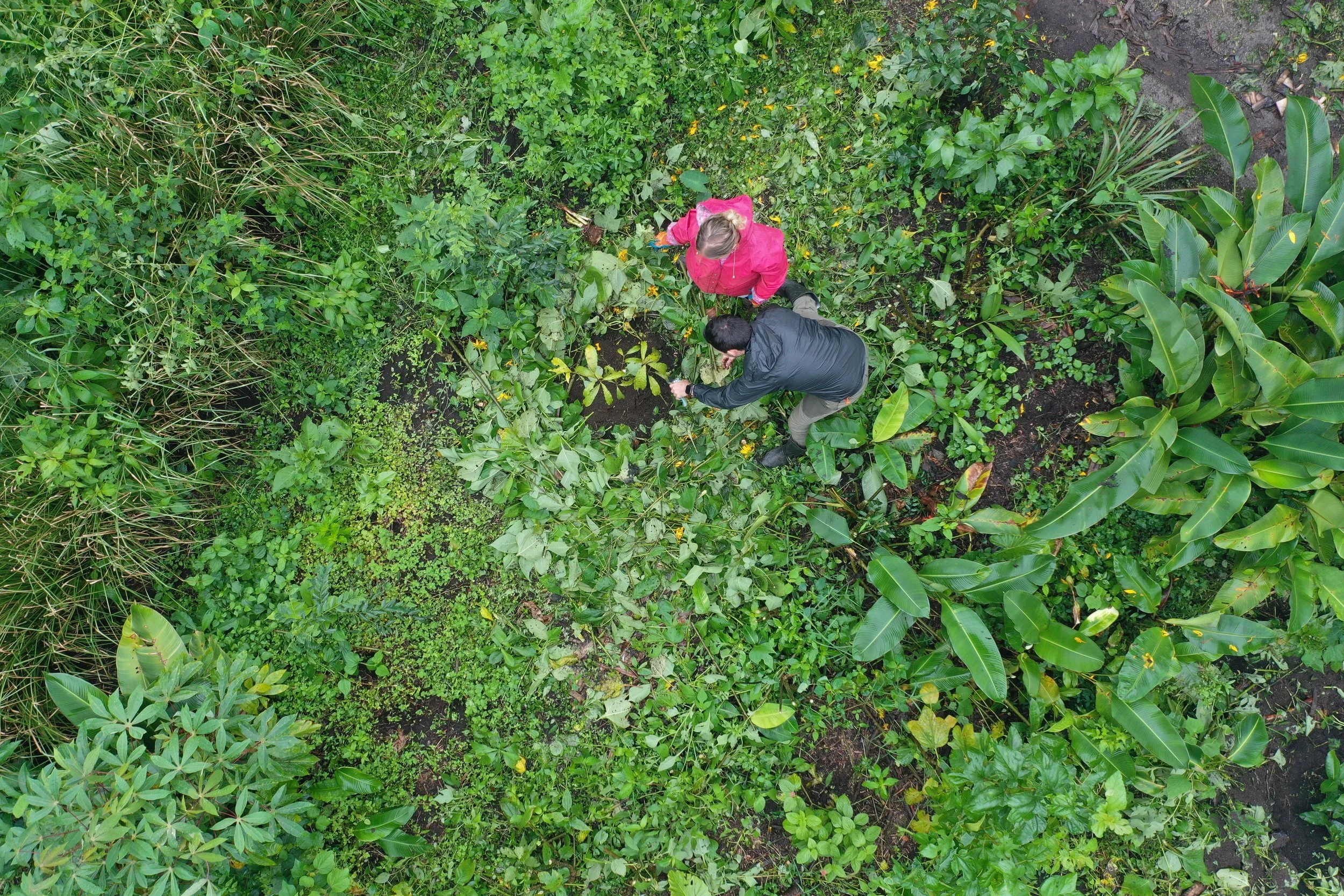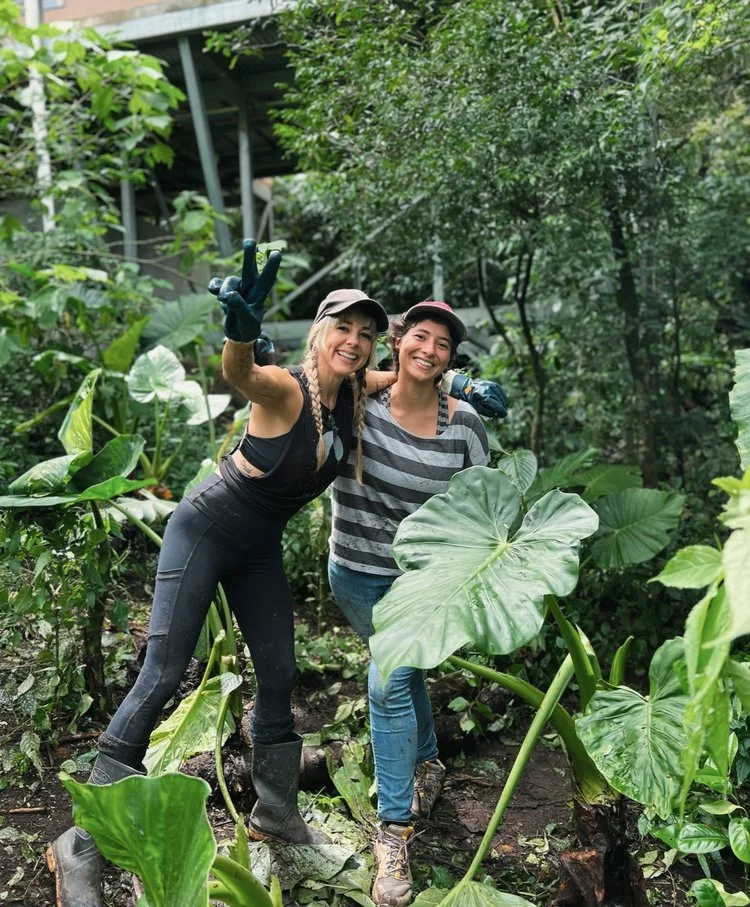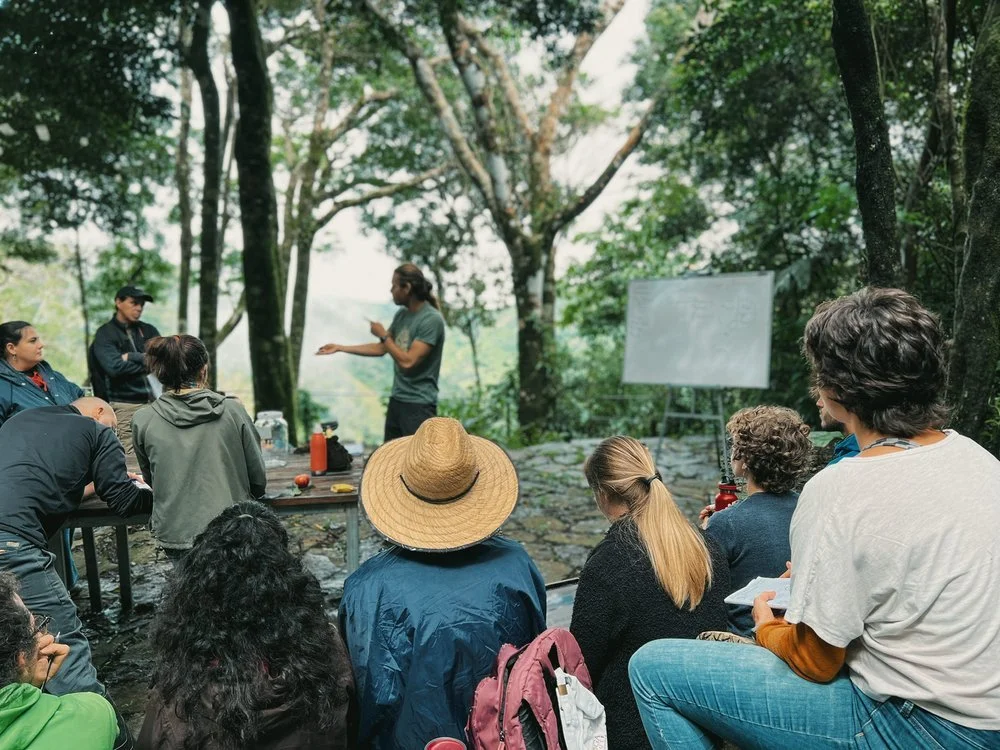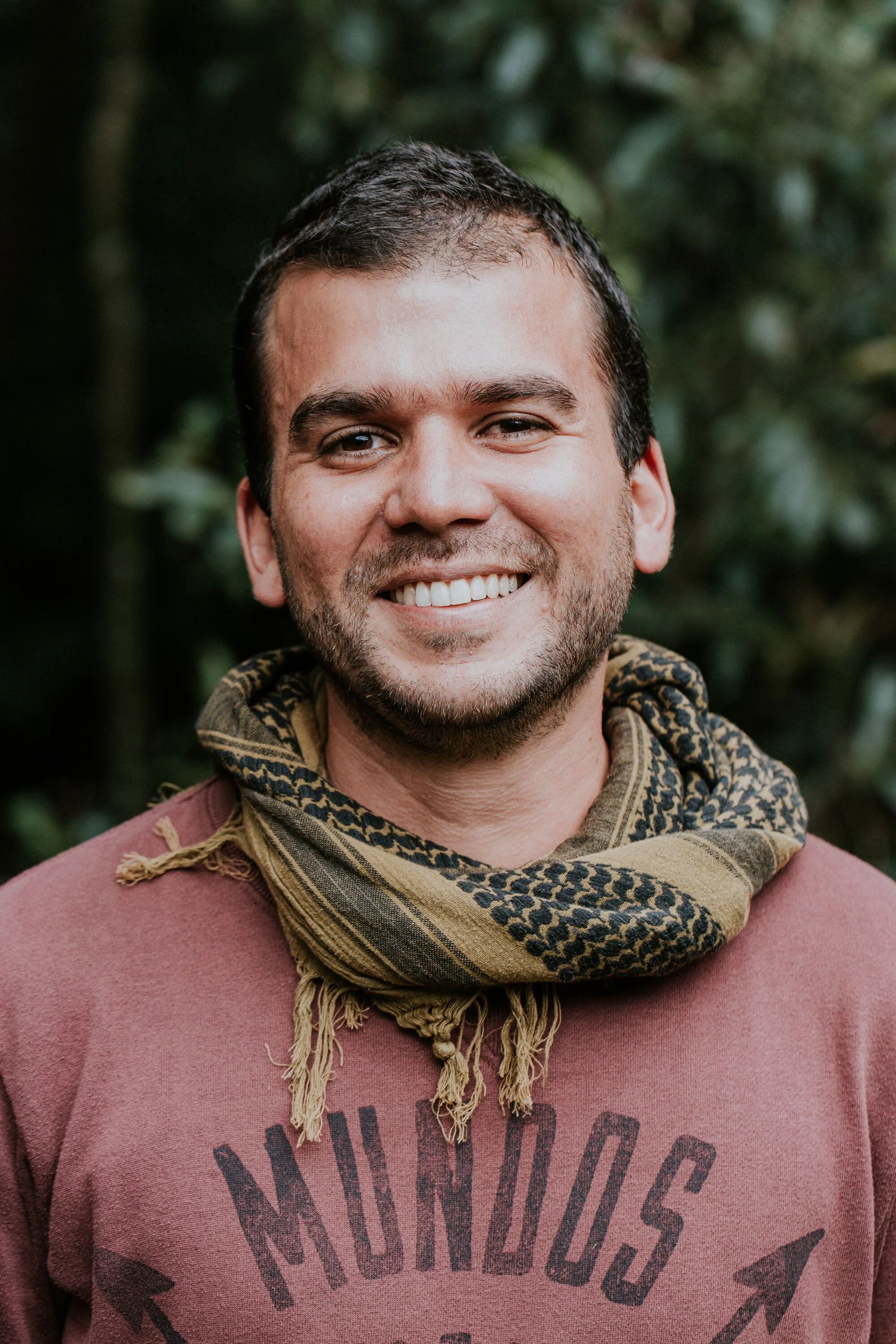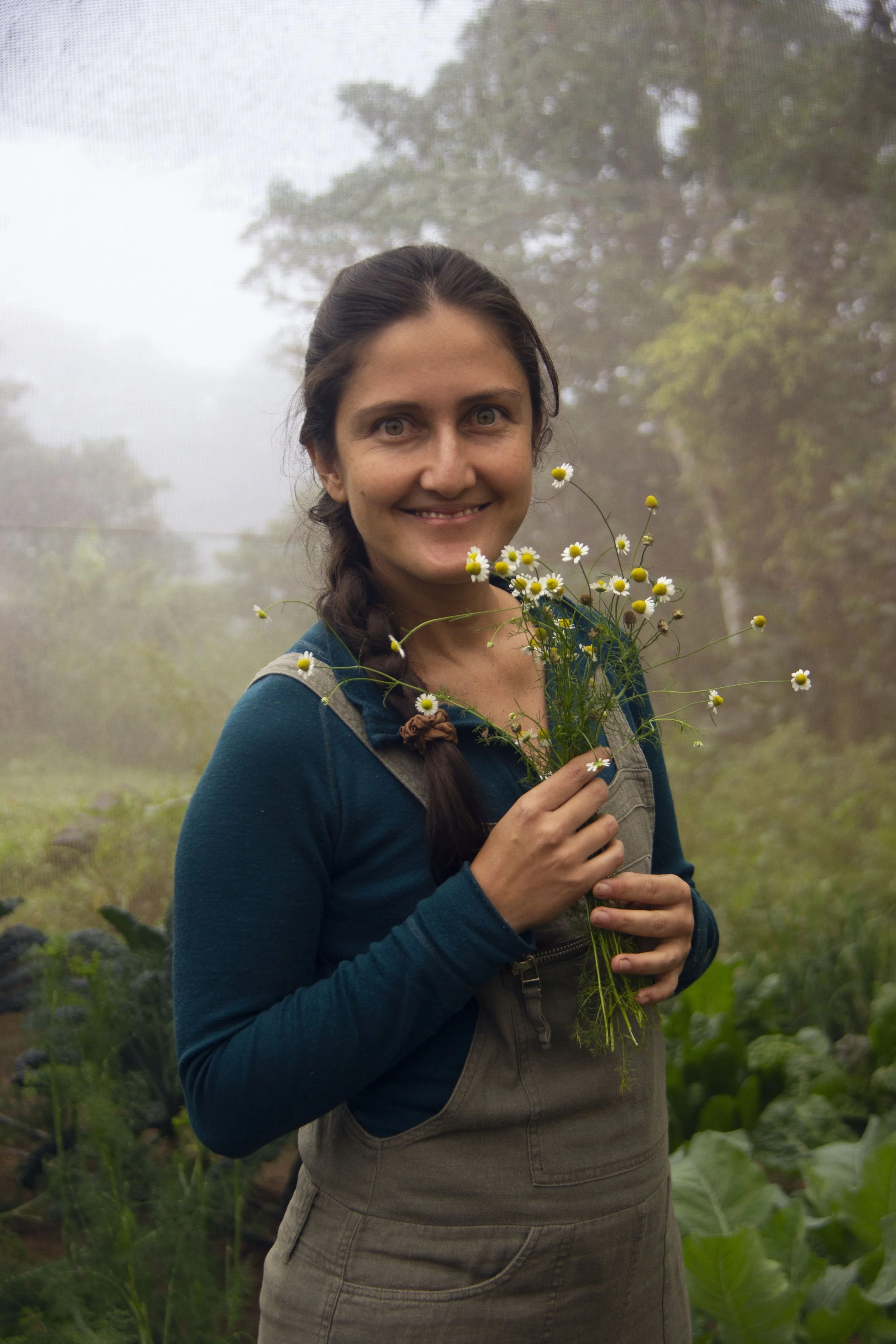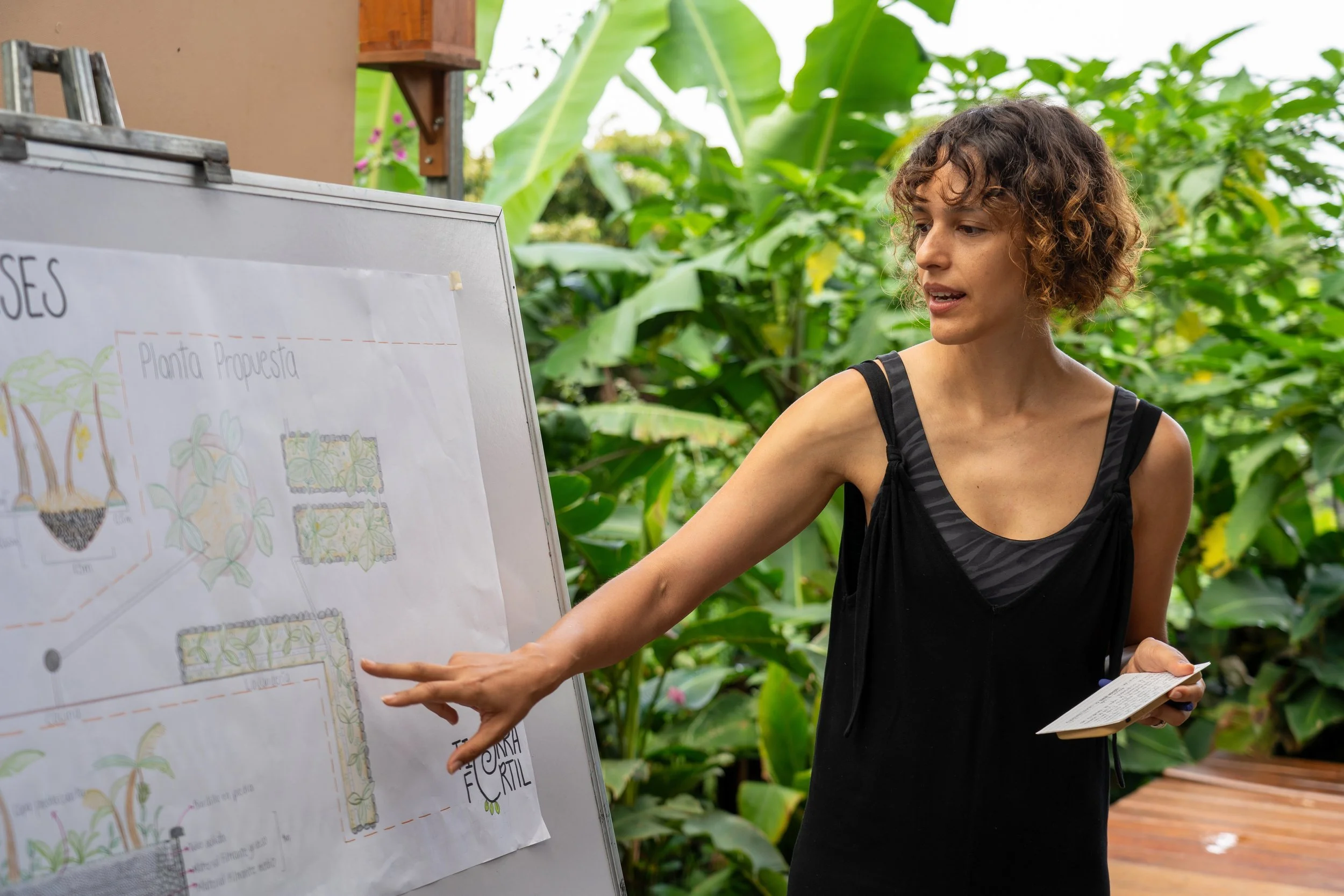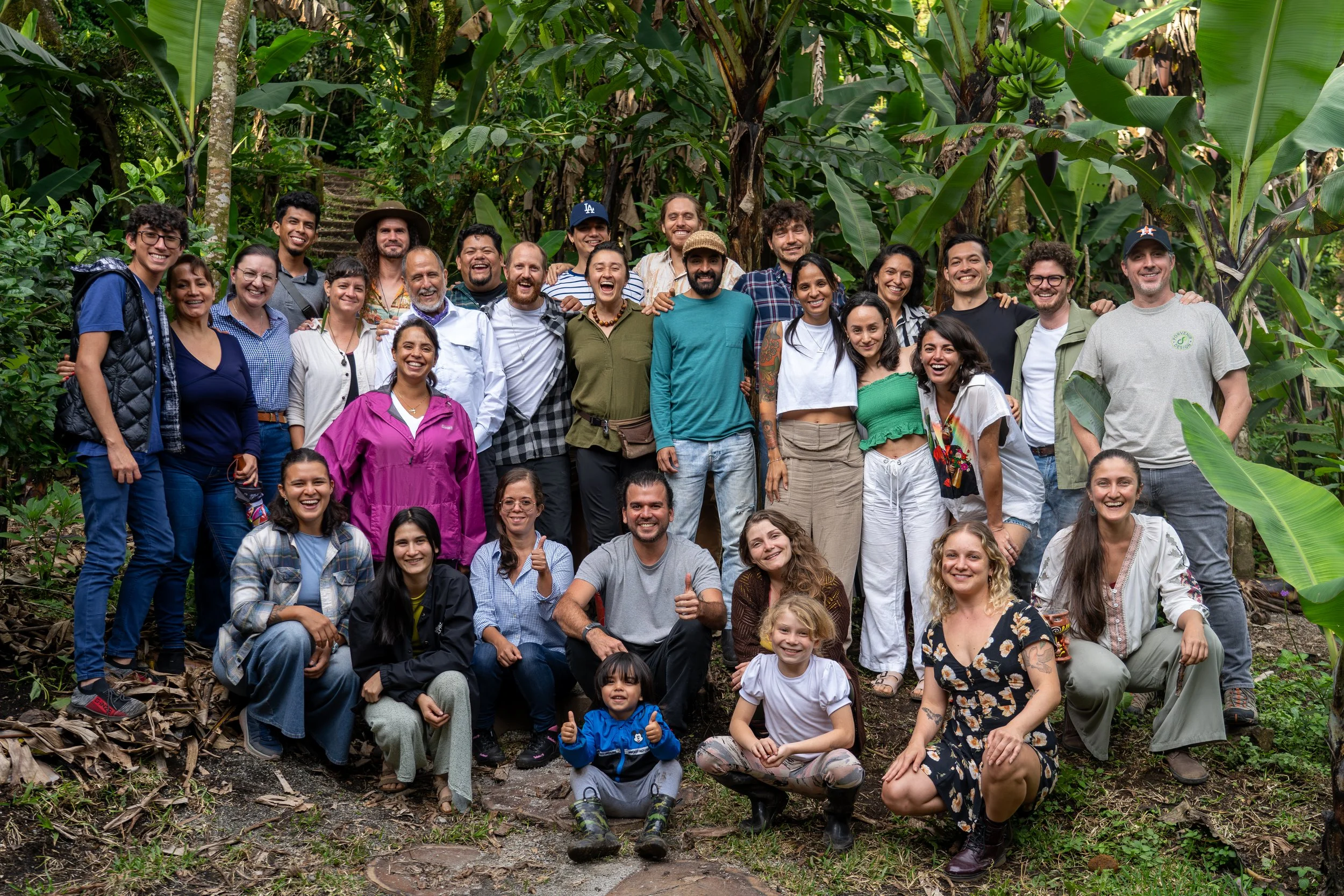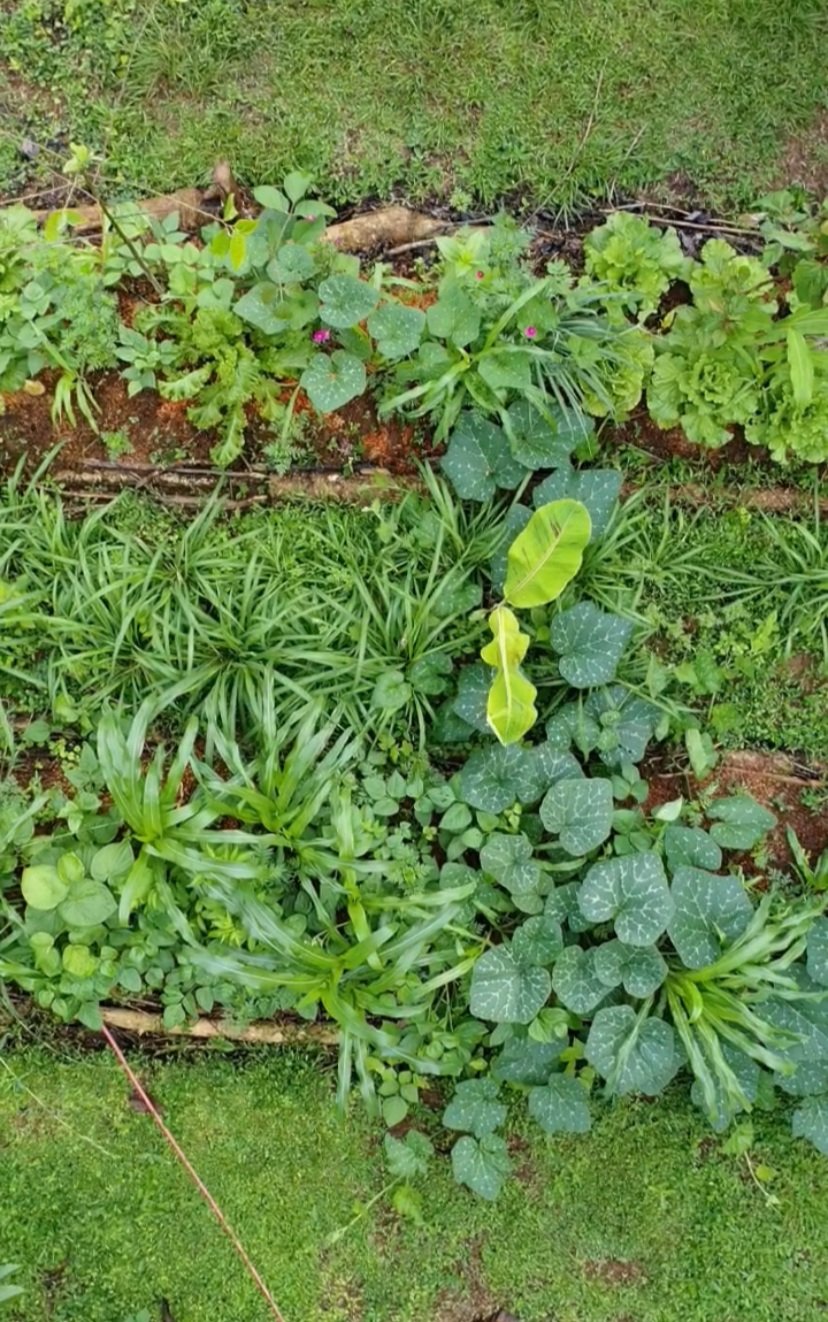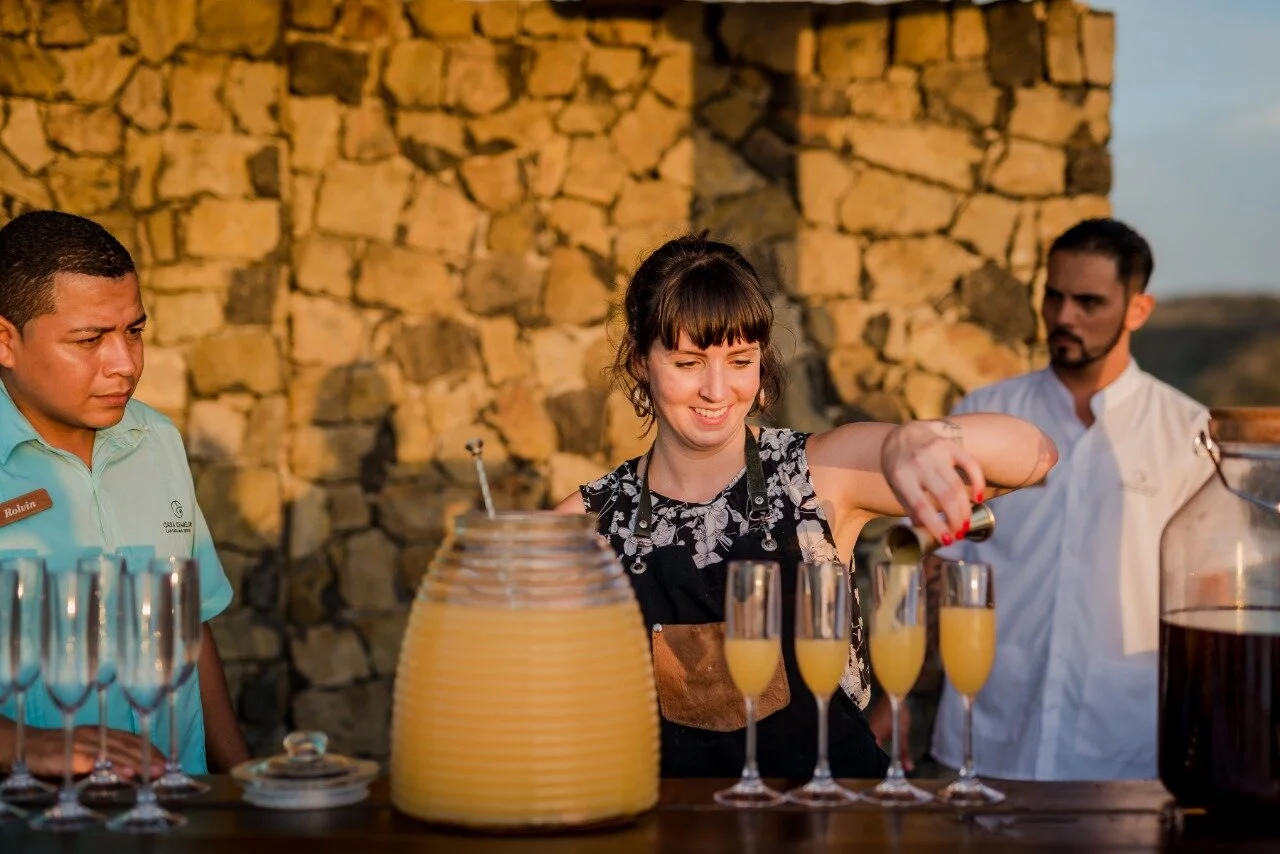TEMAS:
• Historia de la Permacultura
• Principios y ética del diseño de permacultura
• Metodologías de diseño & análisis y evaluación del sitio
• Lenguajes de patrones en la cultura y el paisaje
• Lectura del paisaje y el reconocimiento de patrones naturales
• Técnicas simples de cartografía y topografía
• Entrevistas con clientes y establecimiento de objetivos
• Lecturas de mapas
• Presentaciones de diseño y planificación maestra
• Diseño de clima y microclima
• Agua: Ciclos, Captación, Ecología, Conservación y Tratamiento
• Sistemas de aguas grises y aguas negras
• Movimiento de tierras, construcción de estanques y almacenamiento de agua
• Suelos: Biología, Ecología, Estrategias de fertilidad
• Biocarbón, biofertilizantes, mulching, producción de biomasa, cultivo de microorganismos, fabricación de compost
• Jardinería: desde los trópicos hasta las regiones templadas
• Manejo de huertos y agroforestería
• Propagación de plantas y manejo de viveros
• Sistemas de silvopastoreo y acuacultura
• Estrategias de cosecha, manejo post cosecha y fermentación
• Refugio y ubicación
• Aplicaciones y estudios de caso de la permacultura urbana y suburbana
• Diseñar para el cambio climático
• Energía y tecnología apropiada: energía fotovoltaica, diseño de biodigestores, modelos de cocción alternativos
• Modelos económicos regenerativos
• Estructuras sociales, toma de decisiones y organización comunitaria
• Casos prácticos de proyectos de diseñadores profesionales
